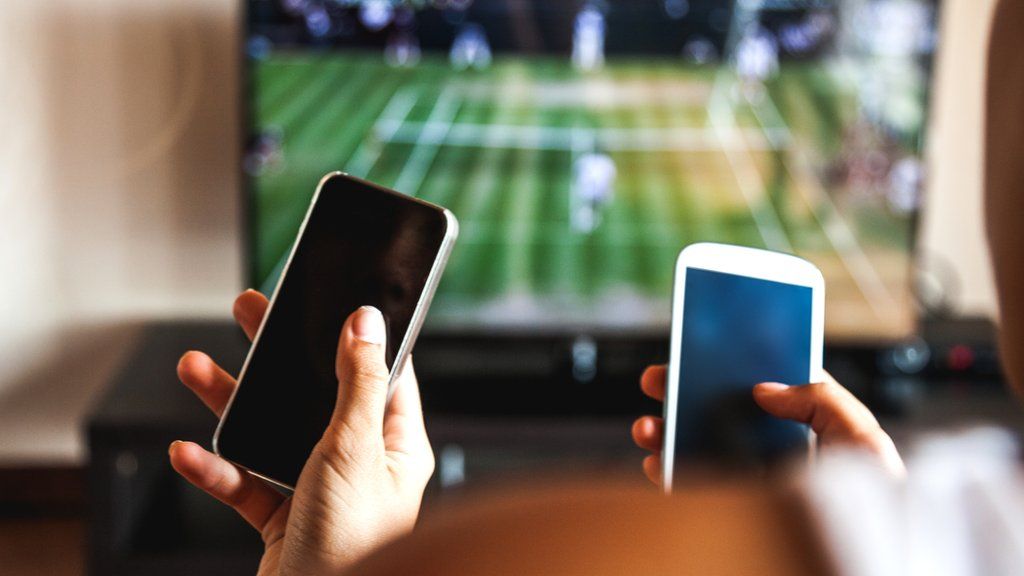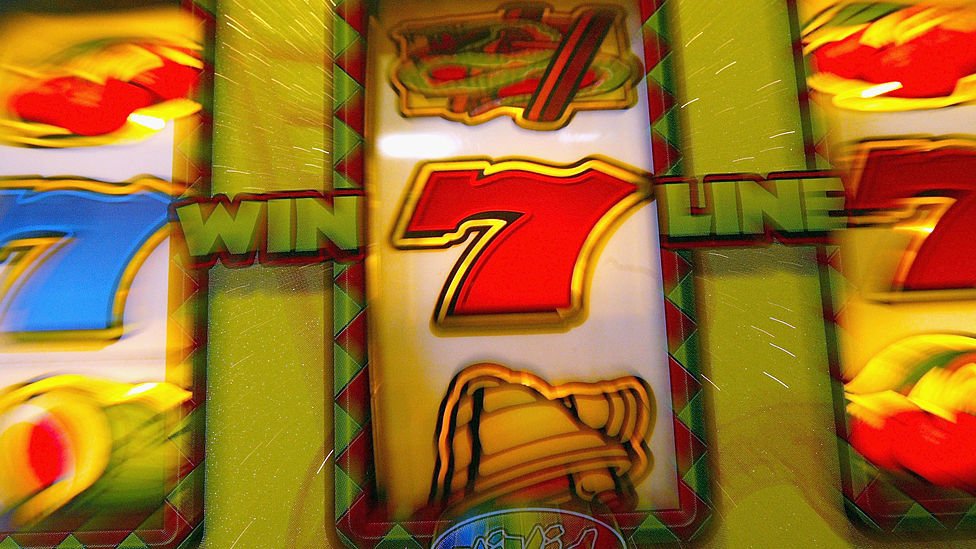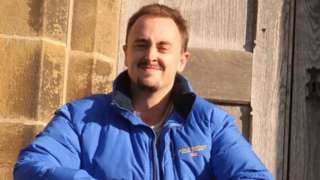Bbc News Gambling Story
Posted By admin On 06/04/22'Gambling was as normal as breathing' Charities who help problem gamblers say this year has been one of their busiest ever. But the number of women reporting gambling problems is increasing at.
Antigua and Barbuda is one of the Caribbean's most prosperous nations, thanks to its tourism industry and offshore financial services. The country's strength lies in its tropical climate and good beaches, which have made it popular as a stop-off point for US cruise ships and have attracted large investments in infrastructure. BBC News has made a version of its website available on the Tor network, allowing it to be more securely accessed via the anonymising browser. The news organisation is putting its international.
Mr Calvert placed up to 20 bets a day at £30,000 a punt |
A man is suing William Hill for more than £2m, money he lost gambling after asking the bookmaker not to let him bet again.
At just 28 years old, Graham Calvert has achieved a great deal. He built his reputation as a greyhound trainer and became one of the best in Britain.
It was a job which earned him up to £30,000 a month and he built up savings of nearly £700,000.
He was even chosen to train dogs for international competitions and his reputation should have ensured a prosperous future.
But it has all been ruined by his gambling habit which has cost him his career, family life and business.
Run an internet search for the words 'Ryder Cup punter' and one of the first items which appears is a story about a gambler who in 2006 placed £347,000 on America to win the Ryder Cup.
At the time it was the biggest golf bet in history and, if successful, would have returned £753,000.
But the downside for the punter was that America lost and the big problem for Graham Calvert, from Wearside, is that he was the punter. That, though, was just a fraction of his losses.
Moments of clarity
He began gambling at the end of 2005 and it wasn't just the odd fiver on the horses.
He says he didn't get a buzz out of bets of tens or hundreds of pounds. He wanted to gamble thousands.
At one stage he placed up to 20 bets a day at £30,000 a punt. But, by his own admission, in what he describes as 'rare moments of clarity', he realised it was all getting out of hand and so excluded himself from a number of bookmakers.
Some of them wouldn't let him bet again while others only allowed him maximum bets of a few hundred pounds. But Mr Calvert was a big time gambler so he went in search of other bookmakers to take on his bets.
So, in May 2006, he opened an account with William Hill - one of the best known bookies in the UK.
He says up until that point he had been reluctant to gamble with them because they owned the track where he raced his dogs.
After placing some big bets he closed that account after just a few days, although he chose to re-open it two weeks later.
About a week later, after more bets totalling nearly £300,000 pounds, he closed it again and this is when he was offered what's known as 'self exclusion'.
Bbc News Gambling Story Ever
This, his lawyers say, is a facility provided by bookmakers to help gambling addicts break free of their addiction.
'Account closed'
The BBC has obtained a transcript of the conversation between Mr Calvert and a team leader at William Hill.
J: 'Hi Mr Calvert , you're through to John, team leader here. I understand you want to close the account?'
GC: 'Yes please, yeah.'
J : 'Can you tell me why that is please?'
GC: 'Cos it's just far too easy to gamble.'
J: 'Right, so do you want to be self-excluded at this point then? Which means you will not be able to open the account with us again within the next six months?'
GC: 'That's right, aye.'
Graham Calvert is claiming William Hill was negligent |
J: 'Right, well, what I'll do is I'll pass on all the relevant information.'
GC: 'Right.'


J: 'The account will now be closed, you will not be able to open it within the next six months.'
After a discussion about returning the remaining funds in the account to Mr Calvert, he's told by J: 'But the money will be returned to your account and the account will now be closed for the next six months.
'You will not be allowed to open it under any circumstances. You will not be allowed to bet over the phone with William Hill.'

But two months later, Mr Calvert did start betting with William Hill again by opening a new account in his own name.
Sacks of cash
It was through this account that he placed the huge bet on the Ryder Cup.
His downward spiral continued and ended up going into William Hill branches with sacks full of cash, using up all his savings and borrowing more than £1m from business associates.
By the time he stopped gambling with William Hill he had made a net loss of just under £2.1m, the amount he is now claiming against them in a High Court case due to start next week.
Bbc News Gambling Story Ever
Regardless of Mr Calvert's big time gambling past his legal team claim that William Hill were negligent in allowing him to continue to gamble after agreeing that he would be self-excluded and that they should be held responsible for the consequences.
But of course there are two sides to the story. William Hill are strongly contesting the claims.
They argue that any individual choosing to place a bet does so as a matter of their own voluntary choice.
The case is likely to take a long look at the issue of duty of care. Where does the responsibility of both the gambler and the bookmaker start and finish?
It will be for the court to establish exactly how and why Mr Calvert resumed betting and whether William Hill can be held legally liable for his behaviour.
Read a selection of the comments:
A bookmaker has, in my opinion, as much duty to a customer as any retailer or publican in refusing their service/product to a customer who they believe is abusing the product. This relates directly to publicans who continue serving customers who have obviously have a problem drinking or had too much alcohol, the publicans are only interested in the customers money, and the after effects can be left to other people or services to clear up, and they take no blame or cost to the consequences of there customer. The Government or authorities seem to pay little or no heed to this ever growing problem which is the root of social disorder.
Mark O'Connor, Worthing
Bookmakers only exist because people lose money on them. However their system ought not to have allowed Graham Culvert to open a new account. This man seems to be not responsible for his actions, but it cuts both ways - if he had won that big bet would he still be complaining that William Hill shouldn't have let him bet?
Andy, London, UK
I work for one of the biggest bookies in Europe as a Bookmaker/Risk Manager. In this particular instance William Hill have done everything reasonably possible to help him stop. If he wished to open another account he could have opened one in the name of a friend or spouse with there help. I don't believe they should be held liable for his actions. (I don't work for William Hill)
Bookmaker/Risk Manager, Gibraltar
I'm sure if he had won the bookmaker wouldn't be able to sue him! This is only a case because he lost, he found a loophole through which he managed to open a new account and should surely be responsible for his own actions. The trend of people suing companies despite performing actions consciously and with carelessness must stop somewhere. If he wins the floodgates could open…maybe I could claim my tenner back I lost on last weeks EuroMillions!
Stuart, London
I work in a major bookmakers (not William Hill) and we operate the self exclusion policy and our bosses are regularly regulating it to ensure we are up to scratch with the policies. We even have role playing sessions! However if Mr Punter truly wishes to have a bet, he will and can do. Even if he was excluded from my own shop, if he came in on my day off when we have different staff, how would they know? There is always a way to gamble! The bookmaker is offering a service, and it's up to the individual to make the choice.
Sandy, Bristol, UK
While it is socially responsible for bookmakers to provide assistance to helping gambling addicts, ultimately the responsibility is down to the individual. Interesting thing to consider, if Mr Calvert had won big, would he have insisted on giving the money back as he'd obtained it while he was supposedly excluded? I think not.
Philip Chillag, Lancaster, England
How can he hold somebody else responsible for his actions? OK he had a gambling problem, but he's the one who kept finding new bookies, opening new accounts, rather than looking for the help he should have been seeking. From this article it seems his attempts to break his addiction were lack lustre and inconsistent at best, and his attempts to sue them are to make him feel better and ease his conscience by shifting the blame. Both the money and the peace of mind he would get will only serve to further fuel his malfunction. What's the phrase, sow the wind and reap the whirlwind?
Andy, Swanley
Surely William Hill is not to blame here? Even if Graham Calvert's betting account had been blocked, surely he could've gone to any of the other bookmakers and placed bets with them.
Daniel Walker, Chester
Yes, of course they have a duty of care. Self exclusion should be strictly enforced. But of course that in itself is one of the pitfalls of living in a permissive capitalist society: If you lose everything through your own actions, then regret it afterwards, you shouldn't be allowed to sue just so you can get it all back. I wonder, if Mr Calvert was a highly addicted, but highly successful gambler, would he be as keen to punish companies like William Hill?
Stuart Bell, Shetland, UK
Perhaps William Hill should have went further to address his need - referral to Gamblers Anonymous? But really its not their place to hold his hand, if he had won it wouldn't even be an issue and am sure he would've continued to this day. Besides wouldn't have he have went to a black market bookie anyway. Take responsibility Graham - counselling not compensation!
Craig, Dundee
Compulsive Gambling Story
I have seen first hand what gambling addiction can do to a family and friends as a close family member of mine has gambled away the house and life savings they had shared with partner. All totalling around £600k lost in 2 years and borrowing another £50k after to keep on gambling leaving them in both in deep debt. Now we are left picking up the pieces, paying their debts and providing for them. Pubs will not server drunk people, junkies get help from doctors & social services etc, why cannot gambling addiction be viewed in similar ways?
Anon, London
BBC News is getting more ambitious with off-platform distribution, particularly for video. But for now, that strategy is fixed on Facebook, Instagram and Twitter, not Snapchat.
The broadcaster has long been prolific with tools like Facebook Live, but Instagram is now a bigger focus, with a following of 3.8 million and climbing for its BBC News account. Since Instagram upped the maximum length on a video from 15 seconds to one minute 15 months ago, more publishers have prioritized video over photos on the platform. The BBC is no exception, publishing 154 videos compared to 12 photo posts on its BBC News account in May, according to NewsWhip data.
On the evening of the U.K. general election on June 8, the BBC published a single live Instagram Story that was updated throughout the night as votes were being counted, via its BBC News account rather than a separate election account, which it has previously used when covering elections. One of its best-performing Stories gave an overview of what happened throughout the night: It began with a graphic of the exit poll, then featured “Question Time” presenter David Dimbleby talking about what it all meant and cut to BBC correspondents reporting from different areas of the country, leading up to the key results.
Typically, BBC News’ live Instagram Stories get an average of 100,000 views, with around half of those watching to the end, according to Mark Frankel, social media editor at BBC News. Views for non-live videos that get published in the Instagram feed can vary wildly, but tend to be in the hundreds of thousands. He said the team is still looking at what referral traffic each platform provided during the election coverage.


Driven by the audience growth and the Instagram Stories feature, BBC News is more focused on Instagram than Snapchat. While it has a Snapchat user account, it’s not a Discover partner and publishes less frequently to its account than other channels. BBC News published to Snapchat as part of its Brexit coverage, but it left out the platform entirely for the June general election. That’s not to say it will stop creating content for Snapchat, but for now, the focus is where it can reach a larger audience.
“We’re funded by license fee, so we have to harness and hone our resources in a way which will make the biggest impact. It’s not worth having a dedicated team of staff on a channel [Snapchat account] that has just 3,000 on for us,” said Frankel. He added that could change in time, but the current focus is Instagram, Facebook and Twitter.
The BBC’s public-service remit means it doesn’t need to grapple with the issues commercial publishers face when it comes to monetizing social platforms. That said, resources are always tight, so although a lot of original video content is created for Instagram Stories, the same material is repurposed or reshot for other platforms to stretch it beyond the 24 hours it has on the platform before disappearing.
“We are keen to make the most of the Instagram because we see the growth potential, but I’m also conscious from a resource perspective that if we cut stuff for Instagram, those same assets can be repurposed for Facebook and other sites,” Frankel said. “I don’t want the work that goes into creating an Instagram Story to only be for that platform. Otherwise, you’re creating lots of separate teams working on different platforms.”
The biggest challenge for BBC News is connecting with the younger audiences that view traditional news broadcasters as part of the “establishment” and not connected with what they’re interested in or believe in, said Frankel. “We’re still figuring out how to get the balance right.”